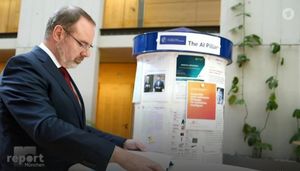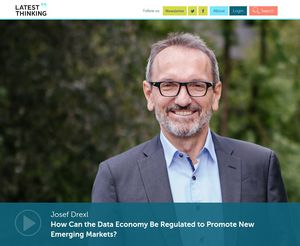Artificial Intelligence is considered the key technology of the future – no car, no hospital, no plant will work any longer without it. The US and China have long since realized that. They pour billions in research and development. Their companies set now the standards for the technology. Experts warn: Germany’s prosperity and future is at risk.
More info on this subject (in German):
Eckpunkte einer nationalen Strategie für Künstliche Intelligenz
Artificial Intelligence – New Research Alliances, Short comment by Dietmar Harhoff and Stefan Heumann





